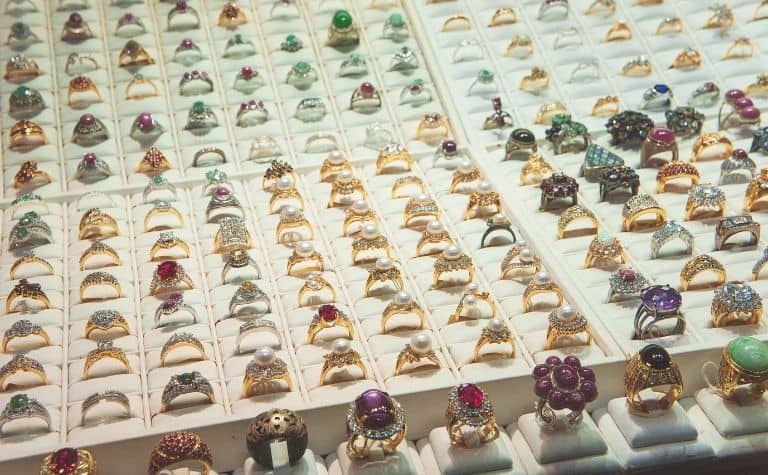United Pentecostals, also called Oneness Pentecostals, are known for rejecting the Trinity, a hallmark doctrine in Orthodox Christianity. They also believe that water baptism and speaking in tongues are necessary for salvation. Besides doctrine, one practice the women are known for is not wearing makeup or jewelry.
United Pentecostal women don’t traditionally wear makeup or jewelry because they believe doing so violates the Bible’s instructions about associating with the ways of the world and what constitutes proper dress appearance. Refraining from outward “adornments” is a mark of holiness in the tradition.
What is the purpose of the tradition’s restrictions on physical appearance? What Bible verses do United Pentecostals cite to defend their teachings and practices? Why do women in the tradition have long hair? How do secular and Christian critics of these practices argue against them? Keep reading to learn the answers to these questions and others.
Also, see Why Do United Pentecostals Wear Long Skirts and Dresses? to learn more.

United Pentecostal Women: Clothes, Hair, and Beauty
United Pentecostals aren’t alone in forbidding women in their organization from wearing jewelry and makeup. Many religious traditions include rules and regulations for the outward appearance of women. (Also see Do United Pentecostals Believe in the Trinity?)
What’s the purpose of the restrictions on the appearance of women? Reasons for such instructions are often rooted in safeguarding a woman’s character and not participating in the norms of secular society. They also intend to prevent men from looking at them with lust.
Where do the rules and regulations come from? For United Pentecostals, the prohibitions on jewelry and makeup come from certain passages in the Bible. However, critics of their interpretations of Scripture charge United Pentecostals with mishandling the passages they cite, which leads them to unfounded applications.
What Bible Verses Do United Pentecostals Cite For Forbidding Jewelry and Makeup?
In defense of the United Pentecostals’ position, adherents cite Old and New Testament verses. Passages from the writings of the Apostle Paul are significant.
“I will that men pray every where, lifting up holy hands without wrath and doubting. In like manner also, that women adorn themselves in modest apparel, with shamefacedness and sobriety; not with broided hair, or gold, or pearls, or costly array; but (which becometh women professing godliness) with good works.” (1 Timothy 2:8-10, KJV)
What is modest apparel? The Greek word translated as “modesty” refers to dressing without shame. This fact means wearing clothing that isn’t revealing. Sexually suggestive attire reflects poorly on a woman’s character, according to the United Pentecostal’s interpretation of the verse.
Why does the passage forbid braided hair and jewelry? In general, such outward adornments copied the dress of unholy women in the first century. In part, therefore, the instruction regards refraining from association with the world. However, some scholars believe that Paul describes the appearance of first-century prostitutes.
Also, see Pentecostal vs. United Pentecostal: What’s the Difference? to learn more.
Avoiding Worldliness In Outward Appearance
Another passage United Pentecostals cite is 1 Peter 3. The context of the instructions regards marriage. The passage gives both the wife and the husband instructions. Part of the instructions to wives is to focus on the beauty of character instead of the beauty of physical appearance.
“Your beauty should not come from outward adornment, such as braided hair or gold jewelry or fine clothes, but from the inner disposition of your heart, the unfading beauty of a gentle and quiet spirit, which is precious in God’s sight. For this is how the holy women of the past adorned themselves.” (1 Pet. 3:3-5a, KJV)
What does “outward adornment” mean? The Greek phrase literally reads “garments of the world.” The Greek word for world in the verse is “cosmos.” It’s where English gets the word cosmetics. Like in 1 Timothy, braided hair, jewelry, and nice clothes are associated with worldliness, and women should avoid them and focus on their character instead.
Why Do United Pentecostal Women Have Long Hair?
Another passage United Pentecostals cite is 1 Corinthians 11. In this passage, Paul teaches that men should have short hair and women should have long hair. This passage is a primary reason why many women in the United Pentecostal tradition have long hair.
“Is it comely that a woman pray unto God uncovered? Doth not even nature itself teach you, that, if a man have long hair, it is a shame unto him? But if a woman have long hair, it is a glory to her: for her hair is given her for a covering.” (I Corinthians 11:13-15, KJV)
See the full article Why Do United Pentecostal Women Have Long Hair? to learn more.

How Do Critics Respond to United Pentecostal Teachings About a Woman’s Appearance?
Non-Christian critics charge the United Pentecostal tradition with an oppressive, misogynistic, and outdated mindset that leads to restricting women of liberty and self-expression.
Christian critics of United Pentecostal teaching on a woman’s appearance generally affirm the wisdom of modesty in dress and focus on building inner character instead of obsessing over physical appearance. But they define modesty differently.
What is modesty?
According to critics, the United Pentecostal tradition practices an unhealthy application of the biblical principle of modesty.
They generally agree that a woman’s identity shouldn’t come from her physical appearance. However, what she looks like is part of who she is, and she shouldn’t suppress that.
They argue that a woman can dress in modern styles, wear braided hair and makeup, and still be modest and defined according to her character.
The argument isn’t against modesty but that the New Testament’s descriptions are examples from the first century and aren’t universal prohibitions for every time and culture. Nevertheless, Christian critics affirm the general principle of modesty as articulated in verses like:
- “Charm is deceitful, and beauty is vain, but a woman who fears the Lord is to be praised” (Prov. 31:30, ESV)
- “Like a gold ring in a pig’s snout is a beautiful woman without discretion.” (Prov. 11:22, ESV)
- “Strength and dignity are her clothing, and she laughs at the time to come.” (PRov. 31:25)

What is applicable for today?
Christian critics also criticize the United Pentecostal interpretations of Scripture for misunderstanding that some instruction was specific to the first century and isn’t directly applicable today.
If the scholars teach that Paul’s descriptions of hair and jewelry described a prostitute in the first century, then the rules and regulations were given to women in a particular context at a specific time in history.
Therefore, the application to modern readers doesn’t necessarily concern braided hair and jewelry per se unless that’s how modern prostitutes dress and identify themselves.
Please see the related articles below.
References:
[1] Source
[2] Source
Related Articles
United Pentecostals, sometimes called Oneness Pentecostals or Apostolic Pentecostals, have unique beliefs which affect their physical appearance. Women in the United Pentecostal tradition commonly...
Pentecostalism vs. Charismatic Movement: What's the Difference?
Many people know that the terms "Pentecostal" and "charismatic" are associated with certain beliefs, churches, and people in modern Christianity but aren't sure how they compare. Although the terms...
